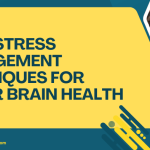- Introduction
- 1. Serotonin: The Happiness Chemical
- 2. Dopamine: The Reward Messenger
- 3. Norepinephrine: The Stress Regulator
- 4. GABA: The Calming Agent
- 5. Glutamate: The Brain’s Energizer
- Conclusion
- FAQs
Introduction
Neurotransmitters are the body’s chemical messengers, playing a crucial role in transmitting signals between nerve cells. They significantly influence our mood, emotions, and overall mental health. Understanding these neurotransmitters can empower us to make informed decisions about our mental well-being. In this article, we will explore five key neurotransmitters that shape our mental health, their functions, and how they can be optimized for better emotional balance.
“Knowledge of neurotransmitters can be a game changer in managing mental health.”
1. Serotonin: The Happiness Chemical
Serotonin is often dubbed the “happiness chemical” due to its role in regulating mood, anxiety, and overall feelings of well-being. Approximately 90% of serotonin is produced in the gut, which highlights the gut-brain connection in mental health.
Key Functions of Serotonin:
- Mood Regulation: Low serotonin levels are linked to depression and anxiety disorders.
- Sleep Cycle: Serotonin influences the sleep-wake cycle and helps regulate sleep quality.
- Appetite Control: It plays a role in controlling appetite and digestion.
Boosting Serotonin Levels:
- Diet: Foods rich in tryptophan, like turkey, eggs, and nuts, can enhance serotonin production.
- Exercise: Regular physical activity increases serotonin levels and promotes feelings of happiness.
- Sunlight: Exposure to sunlight can stimulate serotonin production, which is why many people feel better on sunny days.
“A walk in the sun is not just good for your skin; it can brighten your mood too!”
For further insights on the role of serotonin in mental health, check out Top 5 Essential Insights on Neuro Care You Need to Know.
2. Dopamine: The Reward Messenger
Dopamine is often referred to as the “feel-good” neurotransmitter because it plays a vital role in the brain’s reward system. It is essential for motivation, pleasure, and reinforcement of behaviors.
Key Functions of Dopamine:
- Motivation and Reward: Dopamine release reinforces enjoyable activities, encouraging repetition of behaviors.
- Cognitive Functions: It plays a role in attention, learning, and memory processes.
- Movement Control: Dopamine is crucial for coordinating movement, and its deficiency is linked to Parkinson’s disease.
Enhancing Dopamine Levels:
- Engage in Hobbies: Pursuing activities that you enjoy can boost dopamine levels.
- Balanced Diet: Consuming foods like bananas, avocados, and dark chocolate can help increase dopamine production.
- Limit Stress: Chronic stress can deplete dopamine levels, so stress-management techniques like meditation or yoga are beneficial.
“Finding joy in small things can lead to a dopamine rush that uplifts your spirit.”
For additional information on dopamine’s importance, refer to Top 5 Reasons Neuro Care is Essential in Modern Medicine.
3. Norepinephrine: The Stress Regulator
Norepinephrine is a key player in the body’s response to stress. It helps control the “fight or flight” response and is crucial for maintaining alertness and arousal.
Key Functions of Norepinephrine:
- Stress Response: It prepares the body to respond to stressors by increasing heart rate and blood flow.
- Attention and Focus: Norepinephrine enhances focus and attention, crucial for learning and memory.
- Mood Regulation: Imbalances in norepinephrine levels can contribute to mood disorders like depression and anxiety.
Balancing Norepinephrine Levels:
- Physical Activity: Regular exercise can help regulate norepinephrine levels and improve mood.
- Mindfulness Practices: Techniques like meditation and deep breathing can lower stress and help balance norepinephrine.
- Healthy Sleep: Prioritizing good sleep hygiene is essential for maintaining optimal norepinephrine levels.
“Stress is a part of life, but managing it effectively can make all the difference.”
For more insights on the differences between neuro care and mental health care, check out Neuro Care vs. Mental Health Care: Key Differences Explained.
4. GABA: The Calming Agent
Gamma-aminobutyric acid (GABA) is the primary inhibitory neurotransmitter in the brain, acting as a natural calming agent. It counteracts excitatory signals, helping to promote relaxation and reduce anxiety.
Key Functions of GABA:
- Anxiety Reduction: GABA helps to lower feelings of anxiety and promotes a sense of calm.
- Sleep Induction: It plays a role in the onset of sleep and maintaining sleep quality.
- Muscle Relaxation: GABA can also help reduce muscle tension and promote relaxation.
Increasing GABA Levels:
- Dietary Choices: Foods like fermented products (yogurt, kefir), green tea, and whole grains can naturally increase GABA levels.
- Mindfulness and Meditation: These practices can enhance GABA production, leading to reduced anxiety.
- Regular Exercise: Engaging in physical activity can also boost GABA levels.
“In the chaos of life, finding stillness can unlock the calming power of GABA.”
For insights into common myths surrounding neuro care, check Top 5 Myths About Neuro Care Debunked.
5. Glutamate: The Brain’s Energizer
Glutamate is the most abundant excitatory neurotransmitter in the brain. It plays a critical role in synaptic plasticity, which is essential for learning and memory.
Key Functions of Glutamate:
- Learning and Memory: It is vital for cognitive functions, especially in forming new memories.
- Neurotransmission: Glutamate facilitates communication between nerve cells, influencing overall brain function.






